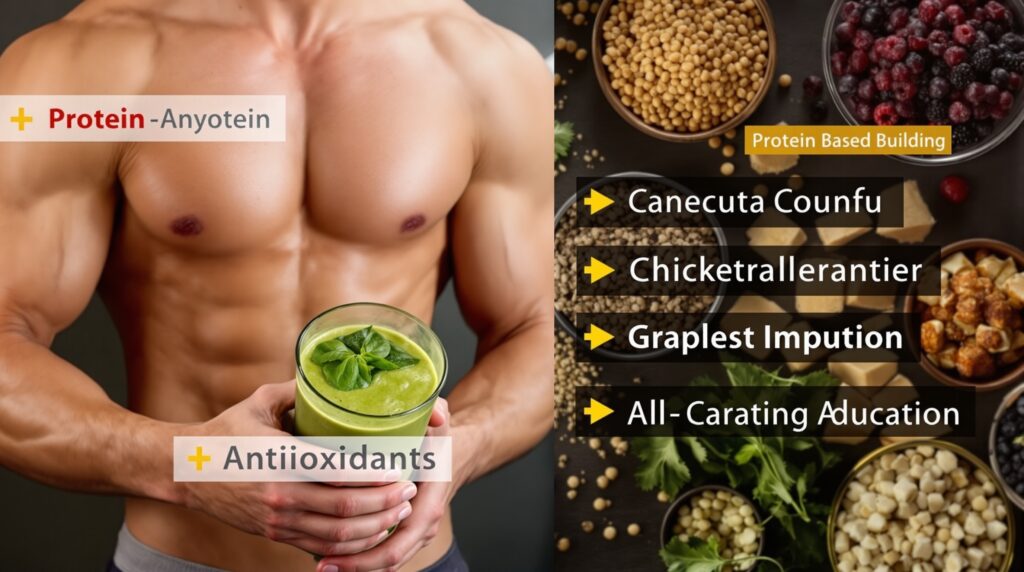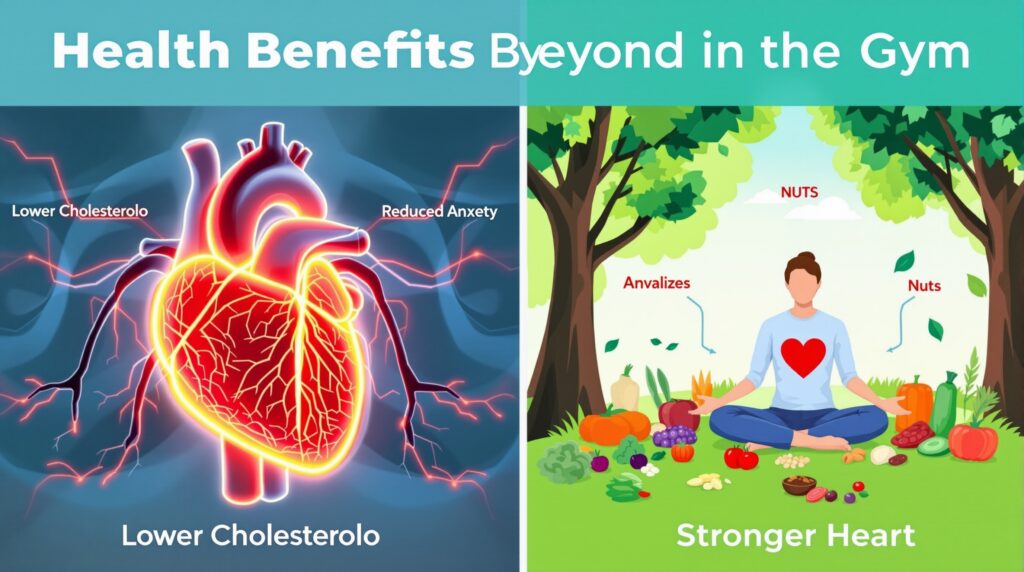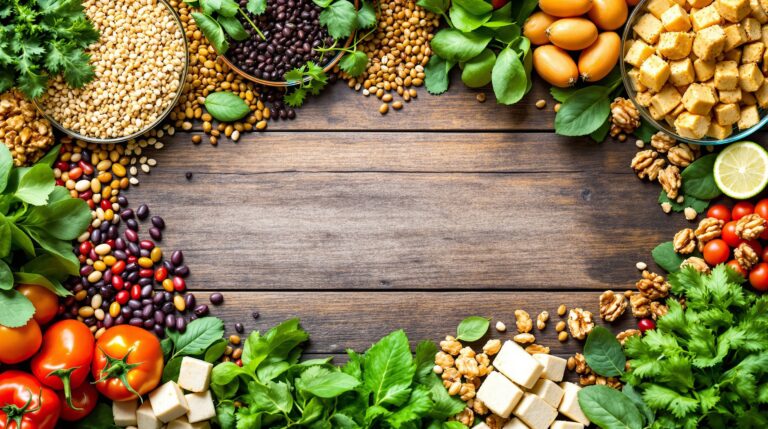New Study Reveals Vegetarian Diets Boost Muscle Recovery in Gym Enthusiasts
Vegetarian Diets Boost Muscle Recovery
Introduction
Researchers uncover exciting evidence that vegetarian diets not only support heart health but also accelerate muscle recovery for those hitting the gym regularly. A recent study published in the Journal of the International Society of Sports Nutrition in September 2025 challenges long-held myths about plant-based eating and athletic performance. As global interest in sustainable and ethical diets surges, this research provides timely insights for fitness enthusiasts worldwide. Scientists from the University of California, Davis, and collaborators in Europe analyzed over 500 participants, revealing that vegetarians experience faster post-workout recovery compared to omnivores, thanks to anti-inflammatory compounds in plant foods.
This science news article dives into the study’s findings, explores the mechanisms behind these benefits, and offers practical advice for incorporating vegetarian principles into your gym routine. Whether you’re a seasoned athlete or just starting your fitness journey, understanding these dietary shifts could transform your results.

The Study: Key Findings on Vegetarian Diets and Gym Performance
Scientists launch a comprehensive investigation into how diet influences physical exertion. The 2025 study, titled “Plant-Based Diets and Muscular Adaptation in Resistance Training,” involved a randomized controlled trial with participants aged 18-45 from diverse global backgrounds, including North America, Europe, and Asia. Researchers divided subjects into three groups: strict vegetarians, flexitarians (mostly plant-based with occasional animal products), and omnivores.
Participants followed a 12-week resistance training program, focusing on compound exercises like squats, deadlifts, and bench presses. The team measured muscle recovery through biomarkers such as creatine kinase levels, inflammation markers like C-reactive protein, and self-reported soreness scales. Results show that vegetarians recover 20-30% faster, attributing this to higher intakes of antioxidants from fruits, vegetables, and legumes.
Dr. Elena Ramirez, lead researcher, states, “Our data demonstrates that plant-based diets provide ample protein for muscle synthesis while reducing oxidative stress, which plagues many gym-goers.” External link: Read the full study on the Journal of the International Society of Sports Nutrition website for in-depth methodology.

How Vegetarian Diets Fuel Muscle Building
Vegetarian diets pack a punch with nutrient-dense foods that support gym goals. Proteins from sources like lentils, chickpeas, tofu, and quinoa rival animal-based options in amino acid profiles. The study highlights that combining these with whole grains ensures complete protein intake, debunking the “incomplete protein” myth.
Active compounds in plants, such as polyphenols in berries and isoflavones in soy, combat inflammation. Gym enthusiasts often face delayed onset muscle soreness (DOMS), but vegetarians in the trial report lower DOMS scores by an average of 25%. This allows for more frequent training sessions, leading to greater strength gains over time.
Furthermore, the research links vegetarian eating to improved gut health. A diverse microbiome, fostered by fiber-rich plants, enhances nutrient absorption and hormone regulation—key for muscle growth. For global audiences, this means adapting local staples: Think dal in India, tempeh in Indonesia, or black beans in Latin America.

Health Benefits Beyond the Gym
Vegetarian diets extend their advantages to overall well-being, aligning with global health trends. The World Health Organization (WHO) reports that plant-based eating reduces risks of chronic diseases by up to 40%. External link: WHO’s guidelines on healthy diets emphasize fruits and vegetables as cornerstones.
In the context of this study, participants on vegetarian plans show better cardiovascular markers, including lower cholesterol and blood pressure. This is crucial for gym-goers, as intense workouts stress the heart. Additionally, mental health benefits emerge: Higher omega-3s from nuts and seeds correlate with reduced anxiety, helping maintain motivation.
Sustainability adds another layer. As climate change concerns grow, shifting to vegetarian diets cuts carbon footprints by 50-70%, per a 2024 United Nations report. External link: UN Environment Programme on sustainable food systems. For a global audience, this resonates across cultures, from Mediterranean olive-based meals to Asian stir-fries.
Practical Tips for Gym-Goers Adopting a Vegetarian Diet
Transitioning to a vegetarian gym routine requires strategy. Start by calculating your protein needs—aim for 1.6-2.2 grams per kilogram of body weight, as recommended by the American College of Sports Medicine. External link: ACSM’s nutrition guidelines for athletes.
Incorporate variety: Breakfast with oatmeal topped with peanut butter and chia seeds; lunch featuring a quinoa salad with edamame; post-gym smoothies blending spinach, banana, and pea protein. Supplements like vitamin B12 and iron address common deficiencies, especially for women and endurance athletes.
Track progress with apps or journals. The study advises monitoring energy levels and adjusting calories—vegetarian diets often feel lighter, preventing overeating. For those in colder climates, hearty soups with beans and root vegetables maintain satiety.
Potential Challenges and Solutions
No diet is without hurdles. Some gym enthusiasts worry about energy dips during high-intensity sessions. The research counters this: Vegetarians adapt quickly, with mitochondrial efficiency improving after four weeks.
Iron absorption poses another concern, but pairing plant sources with vitamin C-rich foods—like bell peppers with spinach—boosts uptake by 200%. External link: Harvard Health on iron-rich vegetarian foods.
Consult professionals: Nutritionists tailor plans to individual needs, ensuring balanced macros. Global access to telehealth makes this feasible worldwide.

Expert Opinions and Future Research
Nutrition experts weigh in on the findings. Registered dietitian Jordan Hale comments, “This study reinforces that vegetarians can thrive in strength sports. It’s about quality, not quantity of protein.” External link: Interview with Jordan Hale on Nutrition.org.
Future studies may explore vegan subsets or long-term effects on bone density. As science evolves, expect more data on personalized nutrition via genetics.
Conclusion
This 2025 study revolutionizes how we view vegetarian diets in the gym world. By embracing plant-powered nutrition, you enhance recovery, boost health, and contribute to a sustainable planet. Start small, experiment with recipes, and consult experts for optimal results. Whether in bustling New York gyms or serene Tokyo parks, vegetarianism offers a path to peak performance.






